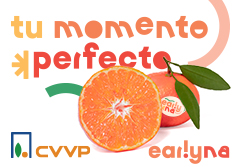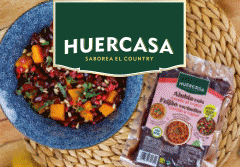Viveros Brokaw is facing 2025/26 with the goal of reaching 900,000 plants per year and even exceeding that figure, with clonal avocado increasingly taking the lead, now accounting for nearly 600,000 units. The rest of production is divided among seedling avocado (200,000–250,000 plants), mango (150,000–180,000), cherimoya, lychee and passion fruit.
For 2030, its goals are: surpass one million plants, consolidate an EBITDA above 20%, expand its international presence and continue leading innovation in subtropical nurseries.
Clonal plant, the star product
“The clonal plant has transformed the sector and today represents more than 80% of our sales,” says CEO José María Fernández Ginés. Its advantages are clear: genetic uniformity, earlier entry into production, higher yield and tolerance to critical diseases such as Phytophthora cinnamomi. According to their trials, a clonal farm can exceed seedling productivity by more than 25%, reducing payback periods and improving profitability.
Although avocado is its main driver, mango is gaining prominence with double-digit growth, especially in areas with water limitations. Interest in passion fruit is also increasing, driven by the juice industry, while cherimoya and lychee remain stable.
As for bookings, they observe two dynamics: large investment fund projects planned up to three years in advance, and traditional farmers, who usually book a year ahead or request plants based on availability.
Expansion and investment funds
With 43 years of history, the nursery is working on expansion projects in Spain—with a focus on Valencia, Cádiz, Huelva and the Cantabrian coast, where it is consolidating innovative projects thanks to its climatic similarity to regions in Mexico—as well as in Portugal and the Mediterranean basin, where it exports to Italy, Greece, Turkey and Lebanon, in addition to opening markets in North Africa.
RELATED NEWS: “I hope what is happening to citrus won’t affect avocados”
Added to this is the growing interest of investment funds, which are betting on large-scale agricultural projects with guarantees of water management and technical support. “They are looking for solid, well-planned projects with guarantees of water management and technical support. The predominant profile is investments of hundreds or thousands of hectares, where predictability, responsiveness, the ability to guarantee the volume of plants required by a project of this scale, and the security of working with the track record and quality offered by a nursery like Brokaw make the difference.”
R&D, sustainability and brand image
Innovation is one of Brokaw’s pillars. It develops new clonal rootstocks more tolerant to water stress, salinity or cold, and promotes the use of fertigation, sensorization and anti-frost technologies. The Dusa® rootstock, a global benchmark for productivity and resistance, plays a central role, followed by alternatives such as Duke 7, Toro Canyon or Borchard. They are also conducting field studies to evaluate new rootstocks.
Sustainability, meanwhile, has been integrated into all processes: energy efficiency, reduced water consumption, reuse of inputs and international certifications (ISO 9001, 14001 and 45001).
In addition, they have renewed their corporate identity and website. “Our products are measured by the hectare, but controlled down to the millimeter. We want to be perceived as the most reliable and innovative partner. We don’t just sell plants, we support each grower to make their project sustainable and profitable in the long term.”




















